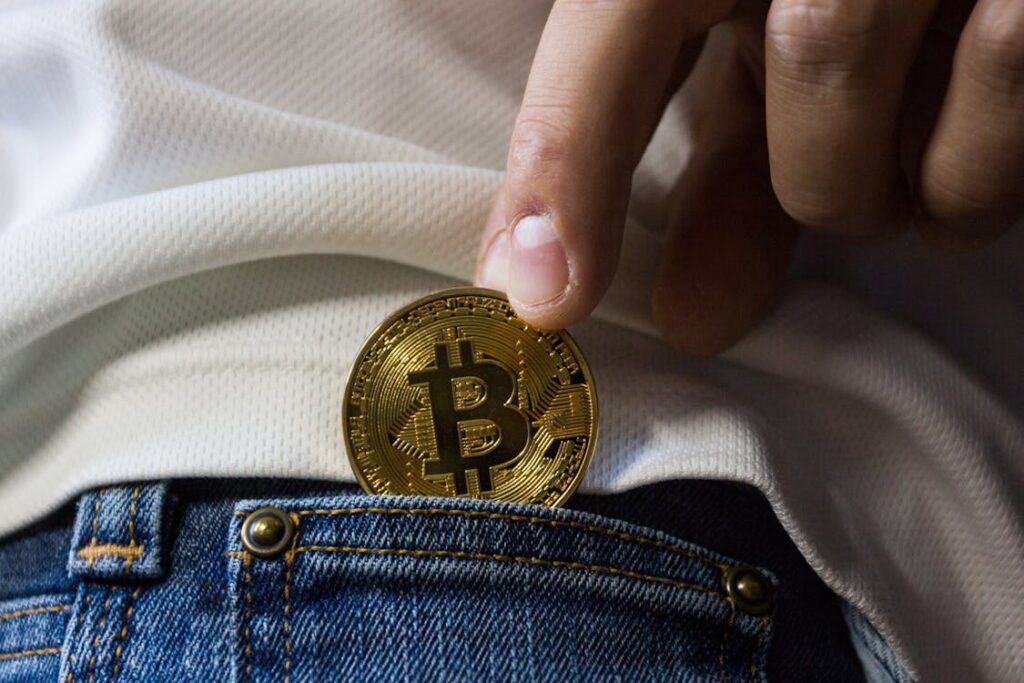 DOI : 10.17577/
DOI : 10.17577/Photo by Worldspectrum from Pexels
Bitcoin, the trailblazer of cryptocurrencies, has been a hot topic since its birth in 2009. A big question mark hangs over it: can it be a safe bet for the future, a store of value like gold, real estate, or some stable currencies?
These are the things we traditionally trust to hold their buying power over time. As Bitcoin keeps growing in popularity, it’s important to see if it can live up to this reputation and what makes people think it might.
Understanding Store of Value
Before diving into Bitcoin’s role, it’s important to define what a store of value means. A store of value is an asset that can be saved, retrieved, and exchanged in the future without deteriorating in value. Key attributes of a store of value include:
- Durability: The asset should not degrade over time.
- Scarcity: Limited supply ensures the asset’s value is preserved.
- Portability: It should be easily transferable.
- Divisibility: The asset can be divided into smaller units.
- Recognizability: It is widely accepted and recognized as valuable.
Bitcoin’s Durability
Bitcoin is digital, meaning it does not suffer from physical degradation like traditional assets. As long as the blockchain network operates, Bitcoin retains its integrity. The decentralized nature of Bitcoin, with nodes distributed globally, ensures that the network is resilient against failures and attacks, further bolstering its durability.
Scarcity of Bitcoin
With a hardcoded cap of 21 million coins, Bitcoin’s scarcity is built into its core and is a major factor in its value proposition. Unlike fiat currencies, which central banks can print at will, Bitcoin’s supply is finite, creating a natural hedge against inflation
Portability and Divisibility
Bitcoin excels in both portability and divisibility. As a digital asset, people can buy Bitcoin and share it quickly and easily across borders without the need for physical transportation. Bitcoin can be divided into smaller units, with the smallest unit being a satoshi (0.00000001 BTC). This divisibility allows users to transact in very small amounts, making BTC practical for everyday use and large-scale transactions alike.
Recognizability
While Bitcoin is not as universally recognized as traditional currencies, its acceptance is growing. Major companies and financial institutions are beginning to accept and integrate BTC into their systems. Plus, Bitcoin’s brand recognition is strong, with widespread media coverage and public awareness.
Volatility: A Major Concern
One of the primary criticisms against BTC as a store of value is its volatility. Bitcoin’s price has experienced significant fluctuations since its creation, with dramatic price increases and crashes. This volatility poses a risk for those looking to preserve wealth over time, as the value of BTC can change rapidly.
However, proponents argue that as Bitcoin’s market matures and adoption increases, volatility will decrease. The entry of institutional investors and the development of financial products like futures and ETFs are seen as steps towards stabilizing the market.
Bitcoin vs. Gold
Gold has long been considered the ultimate store of value. It has intrinsic value, is widely recognized, and has been used as a hedge against inflation for centuries.
Similarities
- Scarcity: Both BTC and gold have limited supplies.
- Durability: Gold is physically durable, while Bitcoin’s digital nature ensures its longevity.
- Portability and divisibility: BTC is more portable and divisible than gold.
Differences
- Volatility: Gold’s price is relatively stable compared to BTC.
- Acceptance: Gold is universally accepted, whereas BTC is still gaining acceptance.
- Intrinsic value: Gold has intrinsic value due to its physical properties, while Bitcoin’s value is based on consensus and utility.
Endnote
The question of whether Bitcoin is a store of value is multifaceted and evolving. For investors considering BTC, it is essential to weigh the benefits and risks carefully. Diversification remains a prudent strategy, and BTC can be a valuable addition to a diversified portfolio.
As with any investment, staying informed and understanding the underlying factors driving value is crucial. Bitcoin’s journey from a niche digital currency to a potential store of value is still unfolding, and its future will be shaped by technological, regulatory, and market developments.





